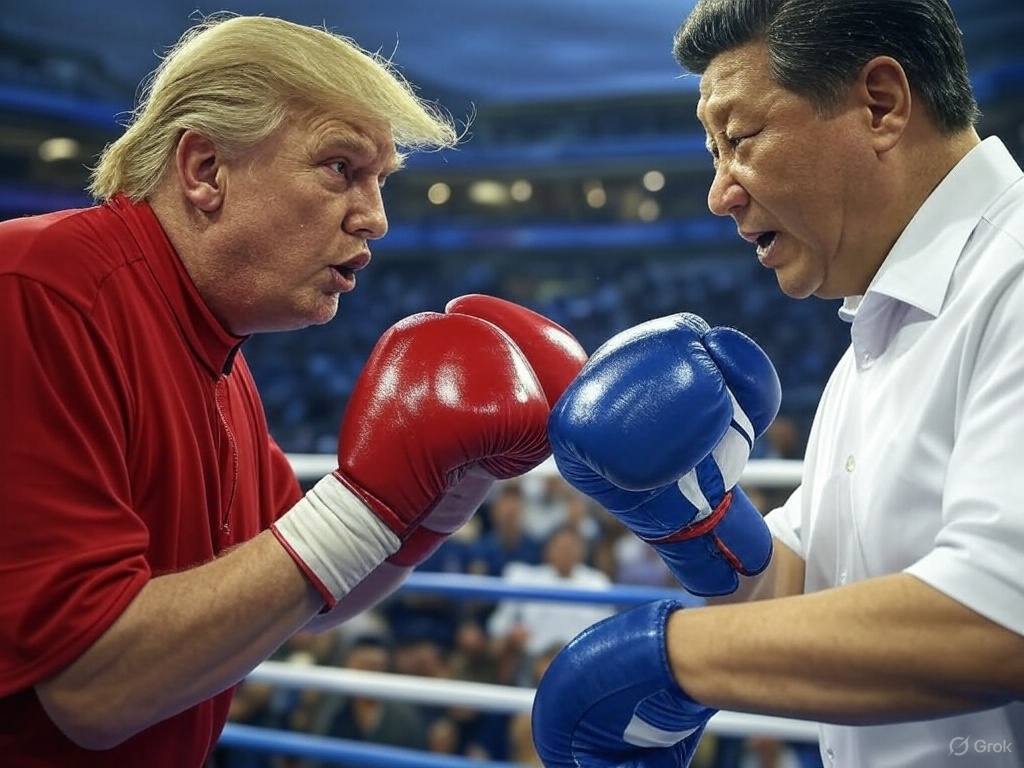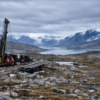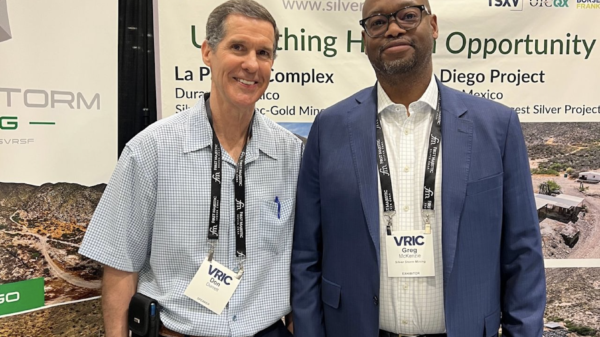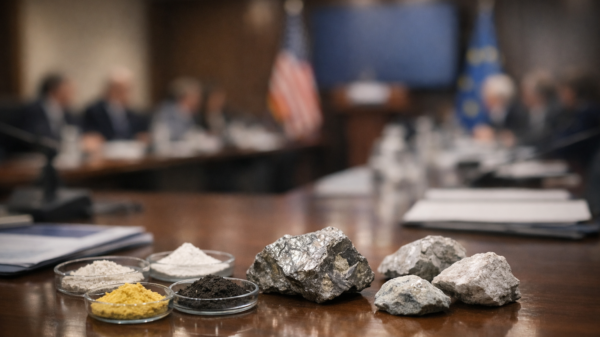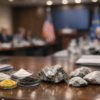Beijing announced earlier this month that it will begin closely monitoring export licenses for rare earth elements (REE), sparking concern among manufacturers of electronics, electric vehicles, and defense technology.
China currently mines approximately 60 per cent of the world’s rare earths and processes nearly 90 per cent—materials that are essential for magnets used in everything from earbuds to military drones. Officials in Beijing have signalled they will place limits on these resources to push back against tariffs imposed by the White House.
As a response to the response, President Donald Trump announced plans to stockpile deep-sea metals to reduce U.S. reliance on China. He’s drafting an executive order to create a domestic reserve of these resources.
This initiative includes fast-tracking deep-sea mining applications and developing onshore processing capabilities.
Naturally, environmental groups and international bodies (including ironically, China itself, which urged the US adhere to international law) have raised concerns about the ecological impact of deep-sea mining and the need for adherence to international regulations.
While the restrictions are rattling global supply chains, they are also opening new doors for countries like Canada.
Even before China’s latest announcement, Canadian firms were advancing efforts to supply and process rare earths and other critical minerals. Ontario-based Cyclic Materials is one example. It specializes in recycling rare earth elements, and signed an offtake agreement with French chemical group Solvay. The deal will see Cyclic ship reclaimed materials from Kingston, Ontario, to Solvay’s expanded processing facility in La Rochelle, France.
Meanwhile, Canadian exploration companies are looking beyond rare earths to other critical minerals. NevGold Corp (CVE: NAU) (OTCMKTS: NAUFF) (FRA: 5E50), a Vancouver-based miner, is pursuing gold-antimony at its projects in Nevada.
Read more: NevGold’s long intervals of antimony & gold mineralization turn heads
Read more: China exercises its stranglehold on rare earth elements
Dependency on foreign controlled resources heart of issue
For clarification’s sake—rare earth elements are a specific group of 17 chemically similar metals used in high-performance technologies, while “critical minerals” is a broader category defined by economic importance and supply risk.
For example, antimony is classified as a critical mineral but not a REE. The U.S. imports nearly all of its antimony, with China dominating global refining. This dependency on foreign-controlled resources is at the heart of the ongoing geopolitical and economic vulnerabilities. It’s further fuelled efforts to build resilient supply chains in North America and among allied nations.
Towards this end, companies started responding shortly after the call went out to find alternative sources of critical minerals. The incentives were certainly there.
For example, after China restricted antimony exports earlier this year, spot prices for the metal shot to the moon. It reached past USD$40,000 per ton in 2025, which marks a rise of more than 250 per cent since January 2024.
Now countries like Bolivia stand to benefit from a trade war they have no part in.
The South American contributes roughly 3,000 metric tons annually, or about 3.6 per cent of global output, which is definitively outside of China’s 50 per cent domination of all the world’s antimony.
CleanTech Vanadium Mining Corp. (CVE: CTV) (OTCMKTS: CTVFF) has identified multiple occurrences of antimony in drill core samples from its El Triunfo gold-antimony project outside of La Paz, Bolivia. The discovery comes from previous drilling in 2020 and 2022, which reported intervals with antimony grades above 0.1 per cent.
Encouraged by the results, CleanTech plans to conduct further evaluation through reviews to assess the project’s potential. The company believes El Triunfo could be strategically significant.
Read more: NevGold pulls critical mineral antimony from Limo Butte property in Nevada
Read more: NevGold uncovers high-grade multi-metallic mineralization in Idaho
Ucore offers production and processing
And NevGold and CleanTech aren’t the only ones taking action, either.
There’s plenty of other firms looking to capitalize on the United States’ demand for critical minerals.
The Saskatchewan Research Council expects its rare-earth metal smelter to be operational by mid-year. It has secured supply deals from South America and Africa and signed clients in Canada and Europe.
Ali Emadi, CEO of Hamilton, Ontario-based automotive startup, Endym represents another example. He recently met with 12 companies and institutes in Japan to discuss the company’s rare-earth-free motor technology. Emadi also posted photos from visits to automakers like Subaru and Nissan.
Then there’s Ucore Rare Metals Inc (CVE: UCU) (OTCMKTS: UURAF) (FRA: U9UA), a Canadian company focused on REE processing and supply chain development. Ucore’s key project is the Bokan-Dotson Ridge Rare Earth Project in Alaska, but it also owns and operates its own proprietary processing technology. It’s called RapidSX and it’s a proprietary separation platform designed to compete with and replace traditional Chinese solvent extraction methods.
In a press release, Pat Ryan, Ucore’s CEO said China’s policy change “highlights the urgent need for a robust and independent rare earth supply chain in North America.”
Furthermore, this isn’t the first time China has weaponised rare earths.
In 2010, it stopped all exports to Japan following a maritime dispute. Japan learned from the incident and built significant stockpiles.
The U.S., however, did not.
Instead many American firms chose not to stockpile to keep capital costs low. That decision now appears short-sighted.
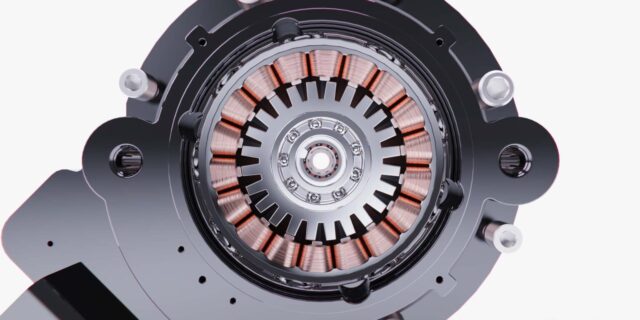
The Endym electric motor that does not require rare earth elements in its construction. Image via Endym.
America’s future warfare systems rely on critical minerals
James Litinsky, executive chairman of MP Materials Corp. (NYSE: MP) —the only company operating a rare earth mine in the U.S.—warned that the stakes are high. He said America’s future warfare systems, like drones and robotics, depend on materials currently cut off by China.
Conversely, when President Donald Trump unleashed a fresh wave of global tariffs, he made a calculated exception. He spared smartphones, laptops, and semiconductors—key products in American life that China largely manufactures. His decision gave tech giants like Apple, Dell, and Nvidia a tactical reprieve, as they heavily rely on Chinese supply chains.
But political curiosity aside, the circumstances still favour the Chinese and the United States needs options. However, where some companies see risk and calamity, others see opportunity.
Lynas Rare Earths Ltd (ASX: LYC) (OTCMKTS: LYSCF) joins NevGold and Ucore in making the most of a bad situation.
It’s backed by Australian mining billionaire Gina Rinehart. Lynas shares have climbed steadily following the announcement. I

Gina Rineheart is Australia’s richest person.
t stands out in the rare earths sector due to its unique position in the global supply chain. While most rare earth operations are based in China—or rely on China for processing—Lynas operates independently, with a major processing plant in Malaysia.
It has also emerged as the most resilient stock on Australia’s S&P/ASX 200 Index amid recent market turmoil. Further, it is also the only stock on the benchmark index that hasn’t declined since U.S. President Donald Trump reignited trade tensions with China through a new round of reciprocal tariffs.
This ability to bypass China entirely has made it particularly attractive to investors amid growing geopolitical risks. Rinehart holds an 8.2 per cent stake in the company through her private firm, according to Bloomberg.
The United States still has options
Despite China’s overwhelming amount of REE and the relative leverage it offers, it’s not like the United States doesn’t have options.
For example, Perpetua Resources Corp. (TSE: PPTA) (NASDAQ: PPTA) is advancing the Stibnite Gold Project in Idaho. This project contains large antimony reserves. Recently, the U.S. Export-Import Bank recently issued a letter of interest for a potential USD$1.8 billion loan. Furthermore, this works perfectly with Washington’s urgency to secure local sources of critical minerals due to China’s tightening export policies.
United States Antimony Corp (NYSEAMERICAN: UAMY), which operates in Montana, is also ramping up production to meet the rise in domestic demand.
Additionally, American Rare Earths (ASX: ARR) (OTCQX: ARRNF), which is based in Australia, is pushing forward its Halleck Creek project in Wyoming. It sees China’s export ban as a major opening and has responded by accelerating development. It’s aiming to position itself as a future supplier to the U.S. market.
Canadian-based Defense Metals Corp (CVE: DEFN) (OTCMKTS: DFMTF) (FRA: 35D), meanwhile, continues to develop its Wicheeda rare earth project in British Columbia.
It recently secured over CAD$850,000 in funding from Canada’s Critical Minerals Infrastructure Fund to support early-stage infrastructure. Still, despite the heightened geopolitical tension around rare earths, the company has maintained a notably low profile. Its silence has stood out during a period when competitors have ramped up both operations and public messaging.
.
NevGold Corp is a sponsor of Mugglehead news coverage
.

